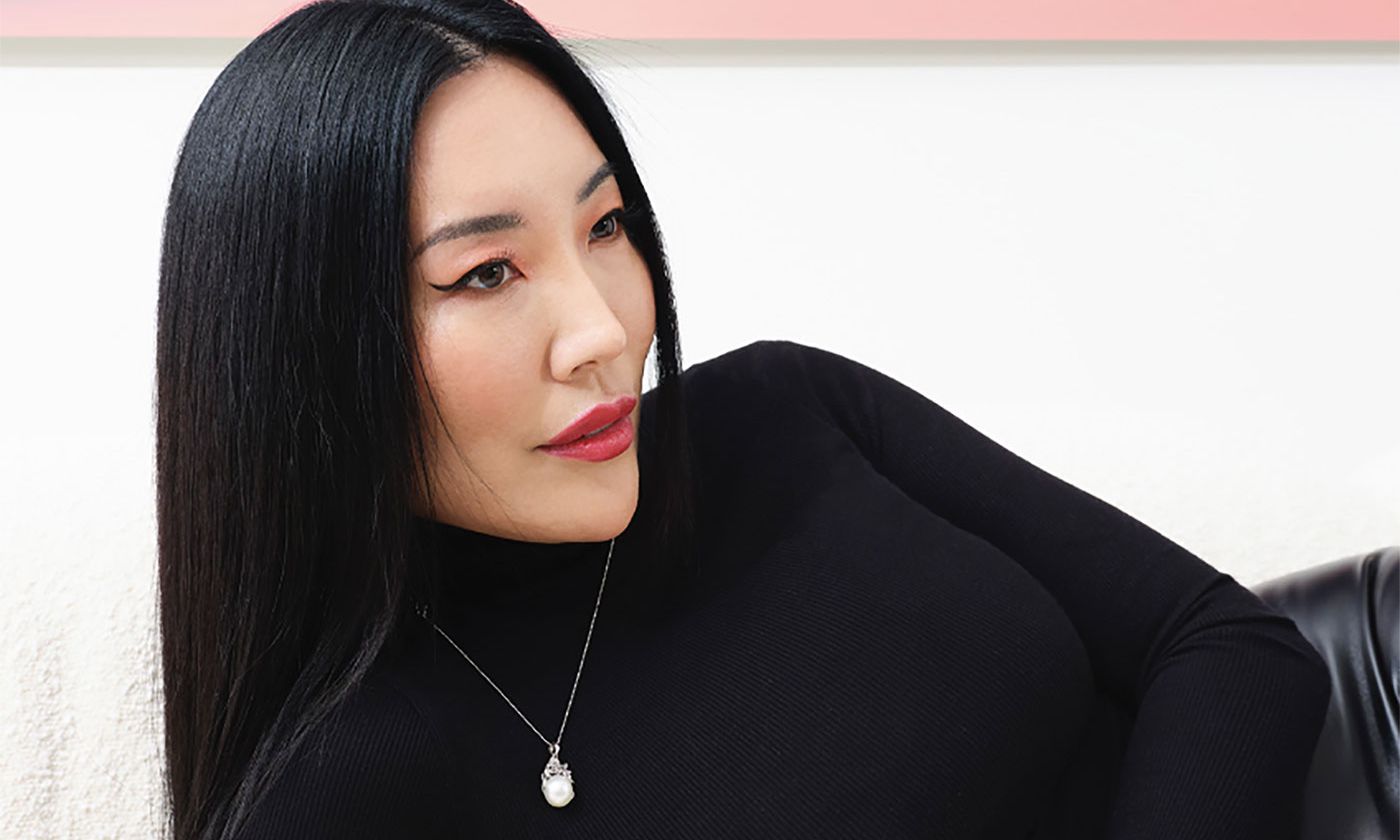Show Media
Krista Kim, whose digital art aims to preserve free thought, humanity and empathy Courtesy Krista Kim
The Canadian-Korean artist Krista Kim was a super creative kid, but her parents wanted her to follow a “more stable career”. So she studied Political Science and Government at the University of Toronto with a view to becoming a journalist, specifically a TV anchor. She wrote for a newspaper while living in Seoul, but when she lived in Japan between 2005 and 2008, her focus pivoted back to art. “I was in the Ryōan-ji temple garden in Kyoto when I realised that Zen gardens are an immersive experience of wellness; they were created [over] 500 years ago by ingenious monks who knew that the environment can become a mirror of the mind. I embarked on a journey of creating art that becomes a service to humanity, that instils that same stillness in people, through the digital language.”
Kim, who received a Masters in Fine Art at Lasalle College of the Arts in Singapore in 2014, is the kind of Renaissance woman whose work looks emphatically to the future. She is Vogue Singapore’s metaverse editor, one of Unesco’s ‘50 Minds for the next 50’, and a cultural leader at the World Economic Forum since 2022. Continuum, Kim’s large-scale immersive work of light and sound, was shown in New York’s Times Square. Curated by Times Square Arts, as a reminder to decompress during the pandemic, Continuum was designed to shift Kim’s audiences into a “state of positive digital consciousness”.
Although Continuum was part of Kim’s manifesto to create Zen for the digital age, it was Mars House that really caught the attention of the art world. It became the first-ever digital house NFT (non-fungible token, a type of cryptocurrency) and, according to Sotheby’s, included “interoperable 3D files that can be integrated into the owner’s metaverse to entertain guests or hold meetings in virtual reality in the metaverse using VR headsets, and augmented reality”. While Sotheby’s concluded that Mars House is “undoubtedly the crown jewel of metaverse architecture, designed for the future”, Forbes described Kim as “like a new digital Rothko”.
Krista Kim's Times Square digital installation Continuum (2022) Krista Kim
Her digital art modernises Rothko’s floating zones of colour by using the kind of vibrant colour palette that would be hard to replicate with old-fashioned paint. Kim is resolutely outward-looking in her practice; she founded the Techism movement in 2014, to reconcile “technological innovation with the creation of art” and which she is determined to use to preserve “a free-thinking society that is empathetic and humane”.
Kim insists that if we don’t adapt to the modern age, we risk losing ourselves. We are still Neanderthals, but our brains are bombarded by millions of messages per day. We are addicted to the dopamine hits we get every time a social media post elicits a ‘like’. We are, she says, all being used. We are the product. When she talks about the world in such brutal terms, it’s jolting, but her words rings true. “AI needs to shift from a stockholders-first mandate, to Humanity First. AI is accelerating. It will become all-powerful. So it has to have ethics and serve humanity as a public good. Too much power in the hands of a few is treacherous.”
For Kim, our response to AI is to protect data privacy as a universal human right. With data protections, AI can be used as a tool for good; to customise education for every child on the planet; to encourage people all over the world to collaborate creatively once AI has streamlined the job market – or we can walk into the future blindfolded, allow companies to access our data and use it to control us with AI tools that erase democracy and free thought within one generation. We can so easily be exploited, a concept she explores in her biometric AI generative artwork Heart Space. “This is a huge turning point in human history. Yuval Harari puts it beautifully when he says that it’s the first time that history is no longer written by man.” Does Kim feel positive about the future? “I believe that we have an opportunity to create a secure and humane foundation for the next phase of human civilisation – but if we do not pay attention, and we’re apathetic, and we don’t take the right steps to protect our data privacy, then we are setting up future generations for tech supremacy, tech AI supremacy, which is dangerous.” She pauses. “But I will always root for humanity.”
All material © Show Media Ltd

